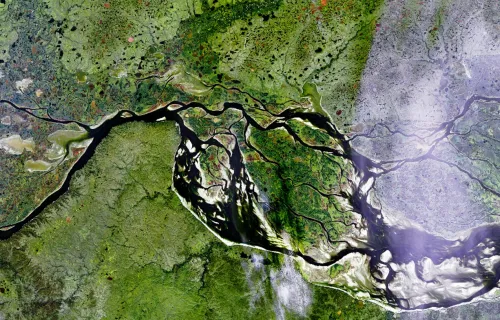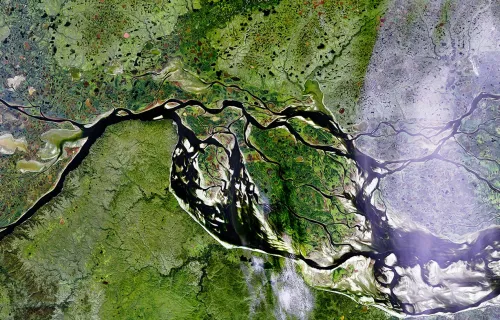10 Petabytes of free Earth observation (EO) data is generated by the Copernicus Programme every year. Copernicus is Europe’s most ambitious EO programme and provides full free and open access to data for the development of applications in a wide variety of domains. The big data produced by EO holds huge potential for the creation of innovative solutions across many different markets.
CGI is a partner of the leading Earth Observation competition Copernicus Masters. With the CGI Big Data Big Business Challenge, we looked for solutions with global potential that use Copernicus data to address real business problems.
We are now proud to announce the three finalists of the CGI Big Data Big Business Challenge as selected by a panel of CGI experts from across our European space business. In alphabetical order the finalists are:
- Agresta, for FORESTMAP - The integrated web platform for forest inventories. ForestMap is a web tool to obtain forest inventory and monitoring reports. Its intuitive interface allows anyone to automatically generate information of a chosen area without the need for fieldwork and unnecessary delays. It estimates all relevant variables of a forest inventory through a combination of Copernicus data and powerful predictive models.
- Energeo for Prospecting for renewable energy using geospatial big data. Energeo uses machine learning to combine satellite data with other intelligence to simplify the process of identifying renewable energy, energy efficiency, smart grid and carbon sequestration projects. This reduces the cost of developing these projects and helps governments, organisations and communities plan and execute sustainable energy strategies.
- Flycom for GMS-GIS for Insurance and GMS-GIS Flood Mapping Module. Flycom's GMS-GIS Flood Mapping Module cross-references waterlogged areas retrieved from satellite data with georeferenced insurance data. This will provide insurers with a tool that: calculates their risk exposure by aggregating risks and identifying overexposed and underdeveloped areas; locates their customers and resources; and allocates their exposure budgeting based on the hazard data.
The winner will be announced at the Copernicus Masters awards ceremony on 4th December during the European Space Week.







